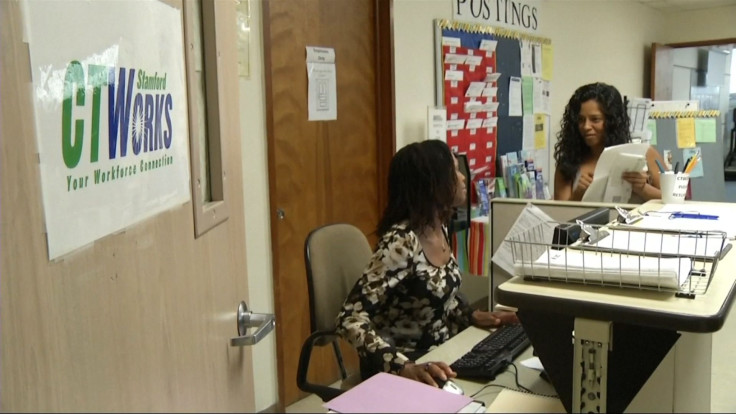July Jobs Report: U.S. Adds 255,000 Jobs [VIDEO]

U.S. employment increased more than expected in July and wages picked up, bolstering expectations of an acceleration in economic growth and raising the probability of a Federal Reserve interest rate hike this year.
Nonfarm payrolls rose by 255,000 jobs after an upwardly revised 292,000 surge in June, with hiring broadly based across sectors of the economy, the Labor Department said on Friday.
The unemployment rate was unchanged at 4.9 percent as more people entered the labor market. Highlighting job market strength, average hourly earnings increased a healthy eight cents and workers put in more hours. In addition, 18,000 more jobs were created in May and June than previously reported.
"It looks like a pretty strong report overall," said Doug Duncan, chief economist at Fannie Mae in Washington. "It shows the economy from a labor perspective is heading in the direction that the Fed wants. It gives the Fed some support for those looking for an increase in rates by the end of the year."
The dollar jumped against the euro and the yen after the data, while prices for U.S. government debt fell as traders ramped up bets on an eventual rate hike. U.S. stocks opened higher, with the S&P 500 index hitting a record intraday high.
Economists polled by Reuters had forecast payrolls increasing 180,000 in July and the unemployment rate dipping one-tenth of a percentage point to 4.8 percent.
Last month's strong job growth should reinforce the Fed's confidence in a labor market that officials view as at or near full employment. Fed Chair Janet Yellen has said the economy needs to create just under 100,000 jobs a month to keep up with population growth.
The U.S. central bank raised interest rates at the end of last year, its first hike in nearly a decade, but since then has held them steady amid concerns over persistently low U.S. inflation and a global growth slowdown.
Most economists expect another rate increase in December, but financial markets are less sure. After Friday's data, however, futures contracts were pricing in about a 46 percent chance of a rate hike by year-end, up from about 34 percent.
RISING WAGES
The signs of labor market strength, particularly the pickup in wage growth, could ease voter frustrations with an economic expansion that has left many Americans behind. That discontent has helped fuel support for Republican presidential nominee Donald Trump, who plans to lay out his economic vision in a speech on Monday.
Trump adviser David Malpass on Friday pointed to the still historically low level of participation in the labor force in arguing policies needed to change. "What you've got is a lot of people being left out of the upturn," he told CNBC.
The 0.3 percent increase in average hourly earnings last month left the year-on-year gain at 2.6 percent. The average workweek increased by 0.1 hour to 34.5 hours, the most since January, which should boost take-home pay.
The payrolls data added to July auto sales in underscoring the economy's sound fundamentals. Economic growth is expected to accelerate to at least a 2.5 percent annualized rate in the third quarter, after averaging a tepid 1.0 percent in the last three quarters.
But with the bulk of labor market slack largely absorbed and the economy's recovery from the 2007-2009 recession showing signs of aging, payroll gains will probably drift to average between 150,000 and 160,000 jobs per month later this year, economists say.
BROAD-BASED STRENGTH
Manufacturing sector employment increased by 9,000 jobs in July after adding 15,000 positions in June. Construction payrolls rose 14,000 following three consecutive months of declines. Mining shed a further 7,000 jobs in July.
Professional and business services, a high wage sector, added a strong 70,000 jobs last month, the most since last October. Retail sector employment increased by 14,700 jobs and payrolls in the leisure and hospitality sector rose by 45,000.
Temporary-help jobs, a harbinger of future hiring, increased 17,000. Healthcare and social assistance payrolls rose by 48,800 jobs, extending the prior month's hefty gains. Government employment increased by 38,000 jobs.
Other details showed a rise in the labor force. That raised the participation rate, or the share of working-age Americans who are employed or at least looking for a job, by one-tenth of a percentage point to 62.8 percent.
The employment-to-population ratio increased to 59.7 percent from 59.6 percent in June.
But a broad measure of unemployment that includes people who want to work but have given up searching and those working part-time because they cannot find full-time employment rose one-tenth of a percentage point to 9.7 percent last month.
© Copyright Thomson Reuters 2024. All rights reserved.





















